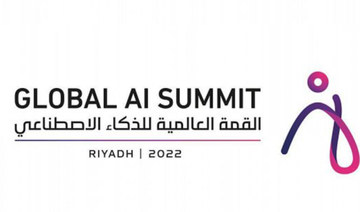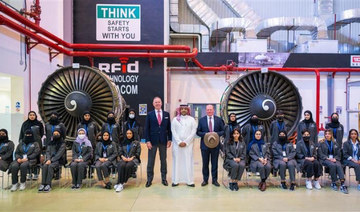RIYADH: Saudi Arabia is planning to build medical facilities worth $13.8 billion by 2030, according to Faisal Durrani, Knight Frank’s partner and head of research in the Middle East.
“Vision 2030 has sharpened the focus on the public realm, liveability and habitability of Saudi cities. Wellness and wellbeing sit at its heart, with $13.8 billion worth of medical facilities expected to be built by the end of the decade,” Durrani told Arab News.
The expenditure is part of a more comprehensive plan to invest $66.67 billion in the Kingdom’s healthcare infrastructure and boost private sector participation to 65 percent by 2030, targeting the privatization of 290 hospitals and 2,300 primary health centers.
The Kingdom is allocating about 14.4 percent of its 2022 budget to healthcare and social development, which amounts to $36.8 billion, the third largest expense after education and military, according to Dubai-based Omnia Health, a global medical directory.
With life expectancy in Saudi Arabia projected to increase from 76.4 to 81.8 years by 2050 and the Kingdom’s population expected to grow to 39.4 million by 2030, increased investment in the healthcare infrastructure and innovation is necessary to drive strong growth in the Kingdom’s healthcare sector, the medical directory reported.
The long march to secure healthcare
The Kingdom has invested in health clusters across the Kingdom, increasing the number of internationally accredited hospitals, doubling the number of primary healthcare visits per capita from two to four and expanding digital healthcare innovation, stated Omnia Health.
According to Colliers International, an investment management entity, the Kingdom will need an additional 20,000 hospital beds by 2030 to tackle shortages and meet the needs of its growing population. The numbers are based on the Kingdom’s rapid expansion plans to host significant infrastructure projects.
“Riyadh alone is expected to see its hospital bed capacity rise by almost 6,600 beds by 2030, the largest increase in the Kingdom,” Durrani said.

“Riyadh alone is expected to see its hospital bed capacity rise by almost 6,600 beds by 2030,” said Faisal Durrani, Knight Frank partner, head of research in Mideast. (Supplied)
Also, another industry metric suggests that a community needs four to six beds per 1,000 population above 65 years, implying that the Kingdom will require between 6,400 and 9,600 beds dedicated to long-term care.
This demand is expected to reach 41,200 to 61,800 LTC beds by 2050, Colliers reported.
“It is estimated that Saudi Arabia will require between 1.64 and 3.05 physicians and nurses per 1,000 population to provide health services in 2030,” stated Omnia Health.
Digital turnaround strategy
The Kingdom is expected to be the fastest-growing digital health market in the Gulf Cooperation Council, with the government allocating $1.5 billion for healthcare information technology and digital transformation programs.
Saudi Health Minister Fahad Al-Jalajel said during the opening of the digital event of the Healthcare Information Management Systems Society last year that digital technologies were one of the essential tools for dealing with the pandemic.
It helped develop the first interactive map of COVID-19 data, providing accurate statistics and employing AI to analyze data and make national strategic decisions.
“Another significant goal is highlighting the importance of health information technology and its influential role in improving performance efficiency, the quality of services, and the optimal use of resources,” he said.
Powered by Oracle Cloud Infrastructure, Saudi Arabia’s King Abdullah International Medical Research Center, one of the leading biomedical and clinical research, uses high-performance computing to power its complex research into a potential treatment for COVID-19 and other infectious diseases.
FASTFACTS
• The Kingdom is allocating about 14.4 percent of its 2022 budget to healthcare and social development, which amounts to $36.8 billion, the third largest expense after education and military.
• Saudi Arabia will need an additional 20,000 hospital beds by 2030 to tackle shortages and meet the needs of its growing population.
• AI, the internet of things and 5G are the factors that are transforming the healthcare sector in the Kingdom.
• Launched in 2022, the Health Sector Transformation Program aims to ensure sustainable healthcare services in the Kingdom and a more effective and integrated health system.
KAIMRC required diligent analysis of structures within the viruses. In addition, the team needed specific simulation tools and robust computing solutions that could capture large amounts of data and run applications smoothly and efficiently.
“Oracle was able to quickly deploy a highly advanced computing environment to support the complex needs of the research and equip KAIMRC with the tools to tackle this urgent problem,” Fahad Al-Turief, vice president of cloud, Oracle Saudi Arabia, told Arab News.
Artificial intelligence, the internet of things and 5G are the factors that are transforming the healthcare sector in the Kingdom. They enable monitoring patients in remote areas, offering critical early interventions and serving healthcare providers to improve efficiency and reduce costs.
According to Omnia Health, 5G will enable new use cases, such as augmented reality surgery, robotic-assisted surgery, connected ambulances, after-surgery care and remote patient monitoring.
In February, the Ministry of Health launched the Kingdom’s first virtual hospital as part of ongoing efforts to digitalize the healthcare sector.
With a growing live network of 130 affiliated hospitals, SEHA Virtual Hospital became the largest of its kind in the world. The only virtual hospital to rival it is in the US, with 43 connected hospitals.
Health transformation goals
Launched in 2022, the newly established Health Sector Transformation Program, part of the Kingdom’s Vision 2030, aims to ensure sustainable healthcare services in the Kingdom and a more effective and integrated health system.
The program aims to improve access to health services through optimal coverage and equitable geographical distribution, expanding the provision of e-health services and digital solutions.
Based on the project, 88 percent of the population will be covered by inclusive health services by 2025, and the unified digital medical records system will cover 100 percent of the population.
The focus on digital health, driven by technology and data, will be at the center of the Future Investment Initiative event in 2022. The world’s leading healthcare players will attend a live in-person edition from Oct. 25 to 27 at the Riyadh King Abdul Aziz International Conference Center.
Under the theme of “The Impact on Humanity,” the event will convene the world’s top CEOs, policymakers, investors, entrepreneurs and young leaders to shape the future of international investment and the global economy.























